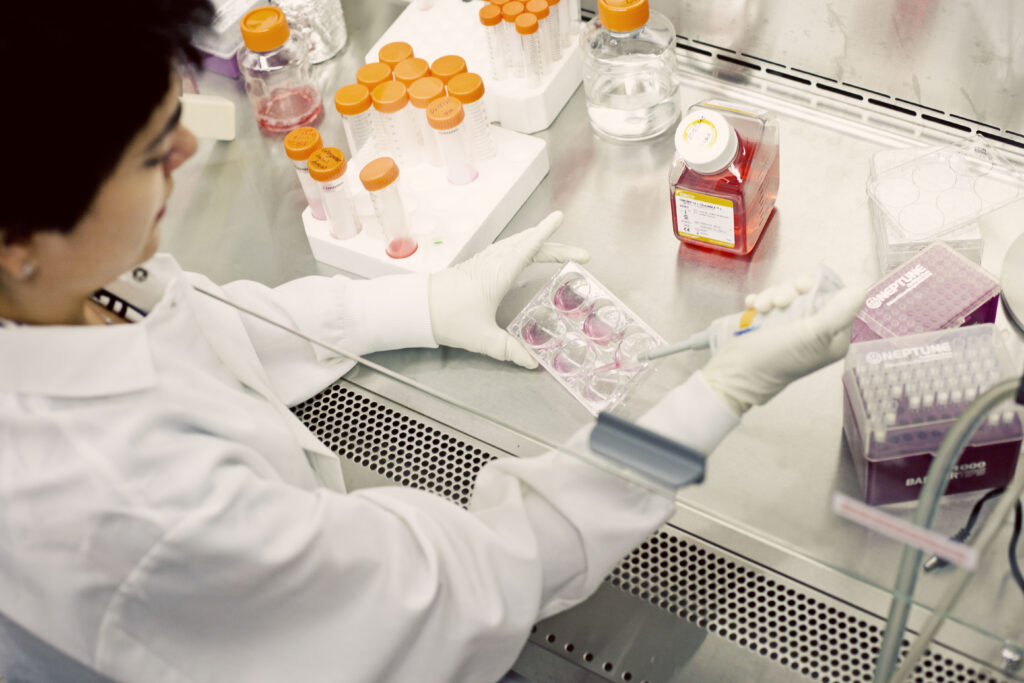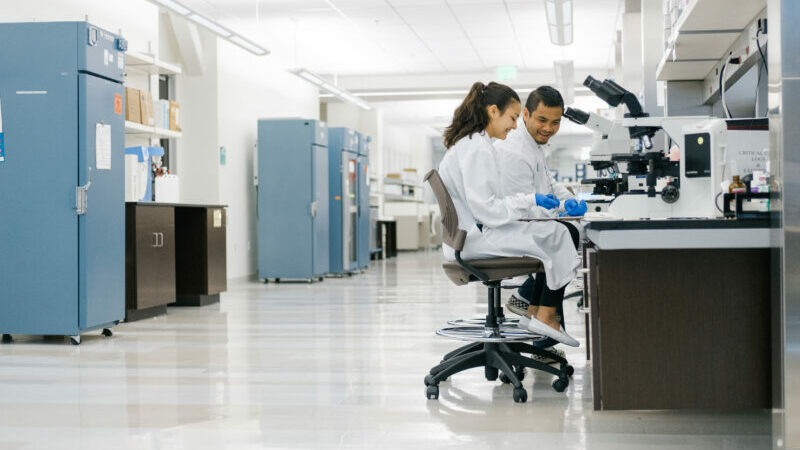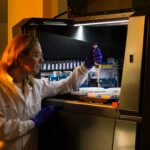
The tech that’s driving San Diego’s biggest scientific breakthroughs
Jul 22, 2021 - Heather Dewis
Artificial intelligence (AI) and machine learning (ML) technologies are quickly becoming more common as computing power and speed increase. From self-driving cars to Siri to scientific research, San Diego companies are increasingly using artificial intelligence to drive innovation and life-changing life sciences breakthroughs.
Here are five ways San Diego teams are harnessing AI and ML to diagnose, develop, and discover.
1. Building better therapeutic antibodies
With a dream team of data scientists and biologists, Abterra Biosciences (formerly Digital Proteomics) uses next-generation sequencing, mass spectrometry, and its proprietary algorithmic analysis software to map the antibody response in humans to develop more effective therapeutic antibodies.
>> Read more.
>> Join the team.
2. Shortening therapeutic development timelines
Combining chemistry and cutting-edge technology, Entos‘ platform combines AI-driven tech and automated synthetic development to improve small-molecule therapeutic design. And armed with Caltech and the University of Bristol technology, a team that boasts Chemistry Nobel Prize winner Frances Arnold, and a $53 million Series A, the company is paving the way for a future of shorter therapeutic development timelines.
>> Read more.
>> Join the team.
3. Predicting success and FDA approval
Using AI, UC San Diego School of Medicine researchers recently developed a model to more accurately hunt for disease targets and then predicts whether a drug is likely to receive FDA approval. Ultimately: UC San Diego researchers believe this approach provides the “predictive horsepower” to help understand how diseases progress, determine a drug’s benefits, and reassess treatment strategies.
>> Read more.
>> Join the team.
4. Predicting and supporting scientific tasks
Biosero is betting on robots. Or rather, Biosero is betting on the automation software it develops for life sciences companies, freeing scientists to spend more time on tasks requiring human involvement. The company collects all data from its instruments – and ultimately plans to apply AI and ML to predict everything from re-orders to future experiments.
>> Read more.
>> Join the team.
5. Predicting the severity of COVID-19
UC San Diego, Scripps Research, and the La Jolla Institute for Immunology are leveraging AI to understand why COVID-19 symptoms vary widely among patients. After filtering through public data, the researchers discovered a set of genes that predict the severity of COVID-19 in a patient. Ultimately, the project’s scientists believe the research could help determine the efficacy of new treatments and vaccines against future outbreaks.
>> Read more.
>> Join the team: UC San Diego | Scripps Research | La Jolla Institute for Immunology




